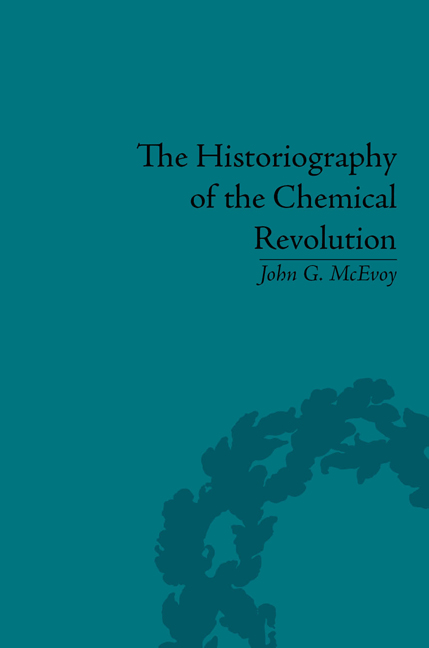Book contents
- Frontmatter
- CONTENTS
- Dedication
- Acknowledgements
- Preface
- Introduction: The Philosophical and Historiographical Terrain
- 1 Positivism, Whiggism and the Chemical Revolution
- 2 Postpositivism and the History of Science
- 3 Postpositivist Interpretations of the Chemical Revolution
- 4 From Modernism to Postmodernism: Changing Philosophical Images of Science
- 5 The Sociology of Scientific Knowledge and the History of Science
- 6 Postmodernist and Sociological Interpretations of the Chemical Revolution
- 7 The Chemical Revolution as History
- Notes
- Works Cited
- Index
7 - The Chemical Revolution as History
- Frontmatter
- CONTENTS
- Dedication
- Acknowledgements
- Preface
- Introduction: The Philosophical and Historiographical Terrain
- 1 Positivism, Whiggism and the Chemical Revolution
- 2 Postpositivism and the History of Science
- 3 Postpositivist Interpretations of the Chemical Revolution
- 4 From Modernism to Postmodernism: Changing Philosophical Images of Science
- 5 The Sociology of Scientific Knowledge and the History of Science
- 6 Postmodernist and Sociological Interpretations of the Chemical Revolution
- 7 The Chemical Revolution as History
- Notes
- Works Cited
- Index
Summary
Steven Shapin summed up the contrasting implications of postpositivism and postmodernism for the historiography of eighteenth-century science in the following words:
Against an older view that the ‘new science’ (and especially the ‘Newtonianism’) of the early and mid-eighteenth century was the underpinning of ‘the Enlightenment’, we now have a developing perspective which points out the existence of a number of species of natural knowledge and a number of opposed ‘Enlightenments’.
While Shapin and his constructivist allies championed the ‘developing perspective’ at the expense of the ‘older view’, some of his colleagues worried that the emphasis that sociological contextualism gave to the ‘contextuality and contingency involved in scientific research’ problematized the obvious ‘intersubjective character’ of that research, denied the conditions of generalizability necessary to historical explanation, encouraged an unproductive relativism inimical to a normative sociology of scientific knowledge, and pointed towards ‘an extreme, obviously absurd form of positivism and solipsism’. Considering these problems through the lens of eighteenth-century studies, Golinskiclaimed that the ‘essential problem appears to be that of specifying the unity of the Enlightenment in a way which complements the analyses of the separate contexts in which it occurred, without obliterating their individuality’.
An adequate solution to this ‘essential problem’ has important consequences for our understanding of the Chemical Revolution as an integral part of the Enlightenment.
- Type
- Chapter
- Information
- The Historiography of the Chemical RevolutionPatterns of Interpretation in the History of Science, pp. 229 - 260Publisher: Pickering & ChattoFirst published in: 2014



